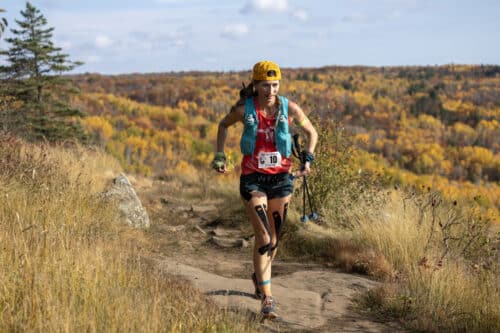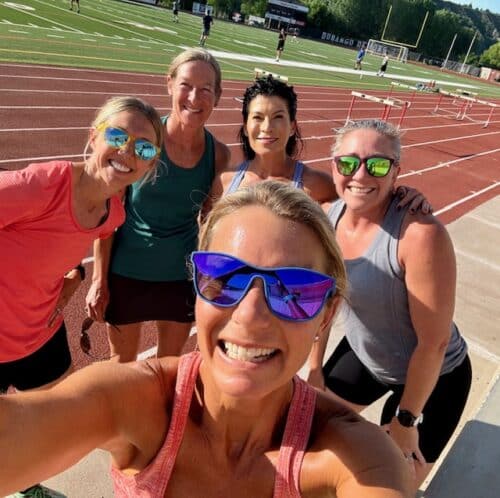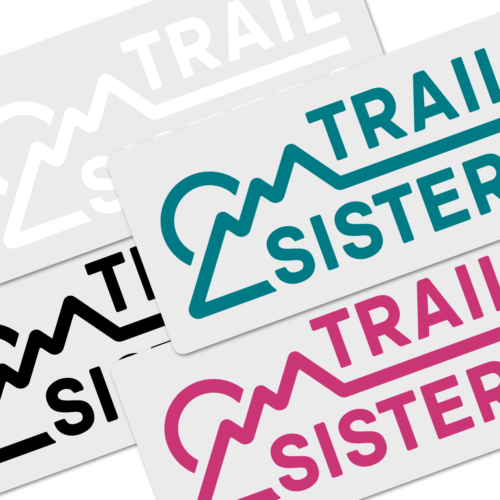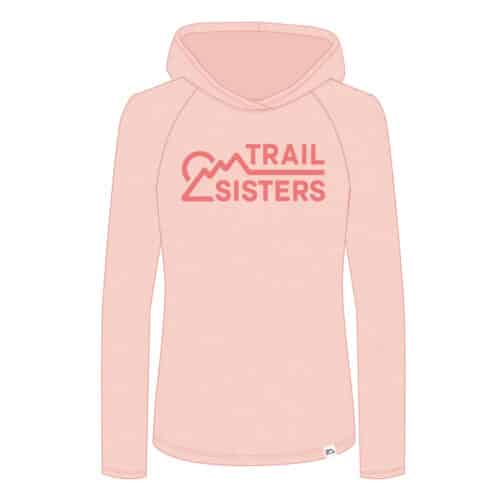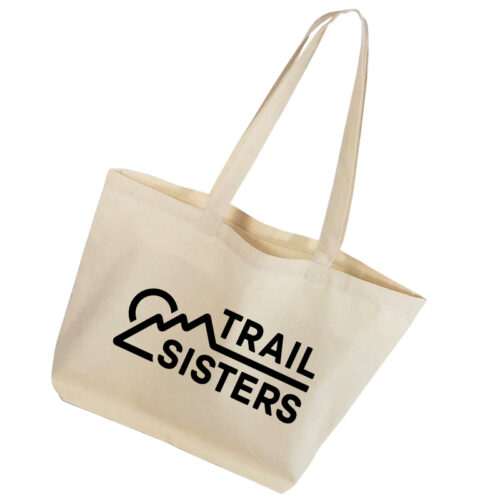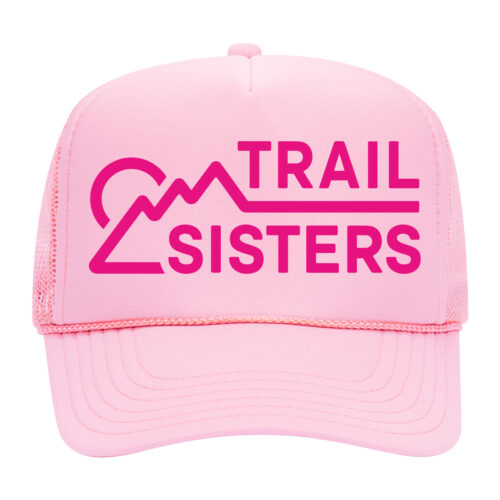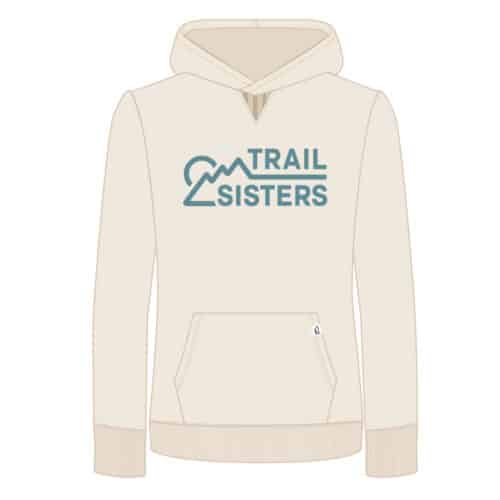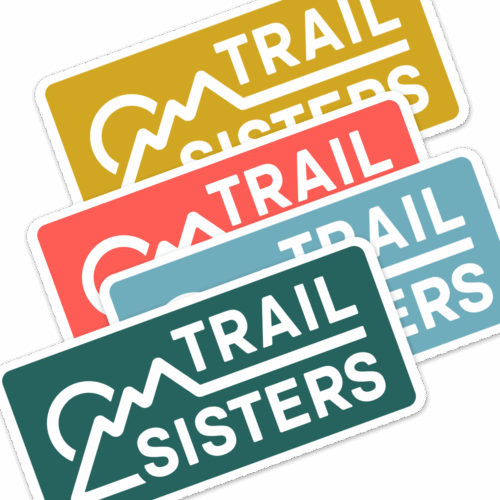“Every month we get our period. I know, we’re not supposed to talk about it. It is the only time a human is bleeding, and that’s not what the conversation is about. … Every day, at some point during your day, you talk to a woman who has her period and you don’t know it because she says things to you like, ‘I’m good, how are you?’”
Michelle Wolf – Period
If you’re keeping track, this is the second time I’ve started a Trail Sister article with a quote from Michelle Wolf. There’s even more of a tie in for this one. I was in the midst of a PMS-hormone-fueled downward spiral at the 2019 Black Canyon 100k when I looked at my crew member Sara and whispered incredulously “Is that Michelle Wolf?!?” She confirmed that it was indeed the comedian hanging out at the aid station and that I needed to get my proverbial shit together and stop worrying about what celebrities I might see that day.
As women, our menstrual cycle adds another dimension to the challenging puzzle that is distance trail running. There are actual physiological changes in our body throughout the month that we, unlike men, need to account for. On top of that, and I think I’m far from alone here, my cycle also impacts my psychology, further compounding any actual issues I’m having. And, since these fluctuations make it much more difficult to study women, most current sports science is based on men.
I am by no means an expert in any of this. If you do want to learn from an expert, Stacy Sims is a great resource, and where I got a lot of my ideas on how to combat my issues. I’ve read her book Roar, listened to her TedTalk and follow her on social media. What follows here is a sharing of my experience with running and my cycle and some things that have helped me.
For me, my actual period is not when I have issues. Aside from figuring out feminine hygiene on the trail and possibly some cramps, I do pretty well at that point. However, my rough days are the last day or two of PMS and that first day or so of spotting. In theory, I could just avoid racing during those days of my cycle, but that would be assuming my cycle is consistent. Most races require registration well in advance, and if my cycle shifts I’m left with the option of dropping out of the race, or running despite the added challenges.
While my symptoms and their severity can vary, here’s what I typically experience in those days leading up to my period:
- General tiredness, sluggishness, and a feeling of being “off” mentally and physically.
- Hydration issues that seem to stem from absorption issues. Fluids slosh in my stomach or I pee them right out. This got to the point at Black Canyon that my urine looked like Coca Cola for much of the second half of the race.
- Shortness of breath/heavier breathing than normal at comparable exertion levels.
- Mental negativity. Again, this can exacerbate these physical symptoms. It can also make it harder to cope with things that go wrong during the race, and often leads to a downward spiral. I feel crappy, I tell myself a negative narrative about this, I feel crappier, etc.
- My muscles, and particularly my quads, deteriorate way quicker than normal. I have learned that changes during the luteal phase (those days before your period) can increase muscle catabolism.
- Cravings for less than ideal foods. I’m not here to vilify “junk food,” but for me it’s not ideal fuel the day before, or of, a big event. It makes me feel even crappier, physically and mentally.
While I haven’t cracked the code 100%, I have found some things that help with these issues. On non-race days I just scale back my effort. I’ve found that getting out for an easy run usually benefits me more than staying in a blanket cave at home like I think I want to. And sometimes I start to feel better enough after a mile or so that I actually end up having a good run. If it’s a race and I’m trying to maximize my performance, here are some helpful tips:
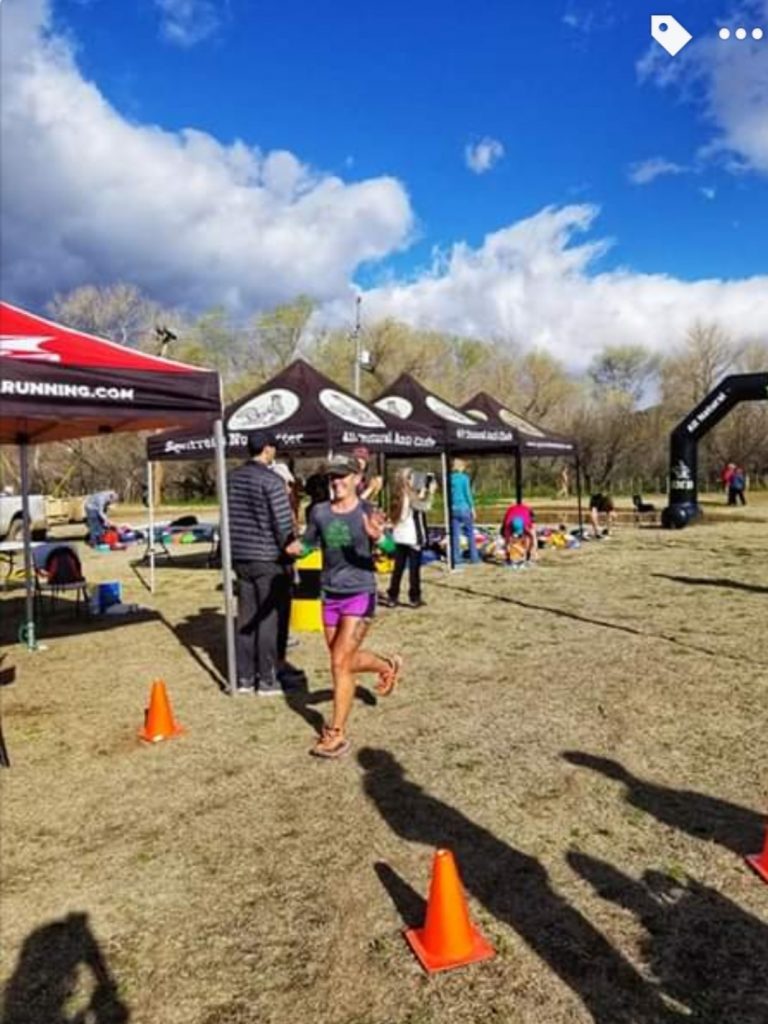
- I take magnesium, zinc and Omgea 3 in the week leading up to my period. This is something I learned from Roar and it actually does help. I take it right before bed and tend to not feel as groggy the next morning.
- Speaking of bed, I make sure I’m getting adequate sleep. I’ve found this is even more important right before my period than any other time during the month. Sometimes though my hormonal changes also cause sleep disruptions (lucky me) and I’ve found that either some herbal tea or CBD drops before bed can help mitigate this.
- I drink beets before workouts and races. Beets contain NO2, which improves your body’s ability to utilize oxygen. I use the Beet Elite drink mix because ingesting a lot of beets doesn’t always sit well with my stomach.
- Hydration is always important in races, but I need to focus on it more if I’m at this point in my cycle. I start adding electrolyte mix the day before the race and have to make sure I stay on top of hydration. Since it tends to slosh in my stomach I find more frequent, smaller intake works best.
- For general nutrition, during this phase, I think it’s most important to remember that your body needs good fuel. I know I’ve been guilty of the thought process of “I just ate that junk food, I need to watch calories, I just won’t eat dinner.” That thinking is counterproductive. No matter if you’re eating “too many calories” your body needs those nutrients. Eat the protein and veggies, you’ll be thankful you did.
- During a race or hard workout, my stomach is even more likely to reject food when I’m at this phase in my cycle. I find it’s helpful to make sure I get extra calories before the race, and much like hydration make sure I’m ingesting small, frequent calories.
- Another item to stay on top of is my mental game during a race. I’m a generally positive person, but my hormones tend to bring out the worst in me. I prepare for this, making sure I have answers to all the things I’ll tell myself during the race to keep myself positive.
- Finally, I find I need to pay attention to my effort on race day. Even doing everything I can to avoid negative impacts on my performance it’s still possible that I’ll be more limited than at a different time in my cycle. This may mean I’ll end up with a slower time than I hoped, but pushing too hard will almost certainly lead to a blow-up with an even more disappointing result.
Ladies, we get our period every month (for those of you who don’t anymore, Stacy also has excellent information on training during menopause). Instead of pretending we don’t, or hoping it won’t come during our races, it’s important to know how it impacts us as individuals and then plan ways that we can have our best day possible. That way when you’re running or racing you can greet people with “I’m good, how are you?”




